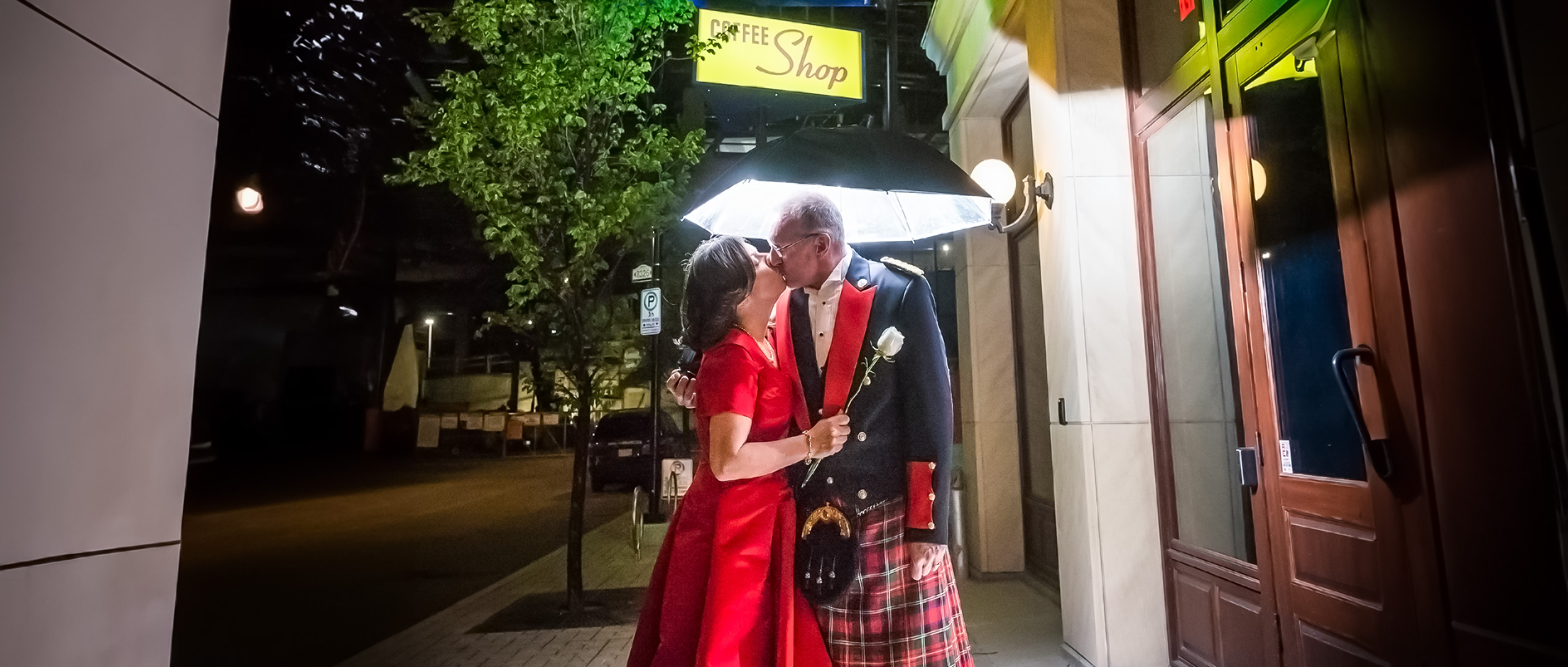When Dayle West talks about his experience with prostate cancer, he prefers to use the word “we” rather than “I.” Like many middle-aged men diagnosed with prostate cancer, Dayle did not face his journey alone, but with a partner. What makes his relationship with his now-wife Steph different than many is that theirs was a later-in-life love story with some big obstacles. Dayle was facing invasive cancer treatment and the repercussions of a potentially life-threatening disease while also planning a wedding and future with the woman he loves.
In 2017, Dayle and Steph had been together for a decade when Dayle received his prostate cancer diagnosis, while in his mid-50s. The diagnosis did not come as a surprise — Dayle’s father passed away in the late ’90s, only learning he had prostate cancer after it had spread throughout his body. Determined not to succumb to a similar fate, Dayle advocated for regular PSA testing while he was in his 30s to establish a baseline. When warning signs started to emerge and the eventual diagnosis came, Dayle was ready to jump into treatment as soon as possible.
“I realized I was likely going to get it sooner or later,” Dayle says. “I had a really good doctor with an intimate knowledge of my prostate over the years and he could see something was different. Normally I wouldn’t be too worried, but because of my history he sent me for a biopsy.”
While Dayle’s diagnosis and treatment were not wholly unexpected, that didn’t mean they didn’t cause alarm. After all, “Honey, I have prostate cancer” is not what a bride typically wants to hear as she finalizes wedding plans, and Steph was understandably anxious about Dayle’s prognosis. While she knew prostate cancer treatment can affect a man’s sexual function, her main concern was ensuring that she and Dayle would be able to grow old together. The couple visited the Prostate Cancer Centre (PCC) together, and staff quickly put her mind at ease.
“I was really happy that the PCC has good educational programs because they were able to calm me down,” she says. “We went to all his appointments together. I provided the comic relief because when I get nervous, I start cracking jokes and kept everyone pretty happy.”
Dayle elected to undergo brachytherapy, an internal form of radiation that involves implanting radiation-emitting seeds in the body close to the cancer. The treatment worked and now, seven years later, Dayle is cancer free. The procedure was completed in March of 2017 and the Wests were married in May of that year. While vacationing after the wedding, Dayle noticed that while he did maintain sexual function there were changes in stamina. Steph quickly reassured him it was not an issue.
“I asked him if, maybe, we need to redefine success,” she says. “To consider that success isn’t a movie ideal or the way it was before. I think that now, at 60 and 64 years old, despite the prostate cancer situation, we enjoy as healthy and active physical sex life – if not more so, as any couple in our demographic with or without cancer treatment in their past.”
Dayle says that redefining success changed his attitude significantly, calling it “the most profound” statement anyone made during his experience with prostate cancer. That support from his partner and the reminder to be grateful through the challenges of prostate cancer is not something he takes for granted.
“It’s not my disease, it’s ours,” he says. “We approached it as ‘what can we do?’ Not everybody’s going to have a supportive spouse like I have. I’m really lucky. This was our journey.”


